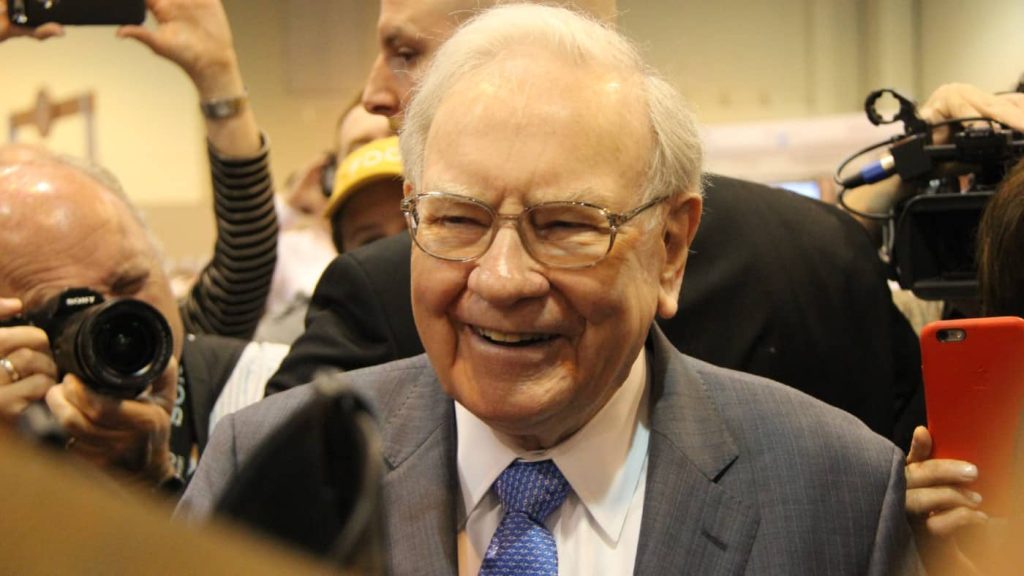Here’s what I’m taking away from Warren Buffett’s final letter


Warren Buffett will soon be stepping down as chief executive of Berkshire Hathaway. The changing of the guard means there will be no more missives from the American billionaire investor to the companyâs shareholders. Although I donât have a position in the investment vehicle, I will miss his pithy comments and interesting insights.
The tone of his final letter is reflective. Buffett says that in his 2019-2023 correspondence, he has used the words âmistakeâ and âerrorâ on 16 separate occasions. He notes that most other companies haven’t used either during this period.
But this is typical of his modesty. For a man who has presided over a company thatâs seen its value increase by 5,502,284% between 1964 and 2024, heâs remarkably humble. By comparison, the S&P 500 has risen by âonlyâ 39,054% during this period.
However, thereâs another part of his letter that I found interesting. He notes that a âsmall but important exception to our US-based focus is our growing investment in Japanâ. Since July 2019, Berkshire’s built stakes in ITOCHU, Marubeni, Mitsubishi, Mitsui and Sumitomo. Buffettâs rationale was that he looked at their accounts and was âamazedâ at their low stock market valuations. At the end of 2024, the group reported a $9.7bn (70%) unrealised profit on these positions.
And because Iâve never invested in Japanese stocks before, this impressive performance got me thinking.
Lost decades
For over 30 years, the country’s economy has been stagnating. Under the strain of falling asset values and an ageing population, the value of the yen has fallen over a third. Real wages have also declined dramatically. But things could be on the turn. GDP growth appears to be picking up and business investment — a good indicator of confidence — is rising.
The government’s announced a stimulus package and, despite the Nikkei 225 soaring by around a third since November 2024, Japanese equities appear undervalued relative to their international peers. To try and reverse this, the Tokyo Stock Exchange has been encouraging companies to pay higher dividends.
One way of taking advantage of these attractive valuations is to buy a stake in the JPMorgan Japanese Investment Trust (LSE:JFJ). At 30 September, it had positions in 62 stocks including all but one of Berkshire’s five. The trust only invests in innovative companies operating in high-growth industries such as robotics, e-commerce and computer gaming.
Since November 2020, the trustâs share price has risen by less than 10%. But itâs now (14 November) around 75% above its five-year low of June 2022. Despite this rally, it trades at a 10% discount to its net asset value. Â
But the Japanese economy remains fragile. Inflation’s rising and US tariffs could have a long-term adverse impact on growth. And interest rates are slowly increasing. In March 2024, the central bank raised the cost of borrowing for the first time in 17 years.
However, many of the trustâs holdings are in companies that have an international reach and are therefore protected â to some extent â from domestic economic pressures. And taking a position could be a good way of spreading risk. Itâs possible to have a stake in 62 companies through a single investment.
On this basis, I think those looking to follow Buffett — and get a foothold in the Japanese market — could consider the investment trust.
The post Here’s what I’m taking away from Warren Buffett’s final letter appeared first on The Motley Fool UK.
Should you invest £1,000 in JPMorgan Japanese Investment Trust plc right now?
When investing expert Mark Rogers has a stock tip, it can pay to listen. After all, the flagship Motley Fool Share Advisor newsletter he has run for nearly a decade has provided thousands of paying members with top stock recommendations from the UK and US markets.
And right now, Mark thinks there are 6 standout stocks that investors should consider buying. Want to see if JPMorgan Japanese Investment Trust plc made the list?
More reading
- How to stay calm and buy stocks when everyone else is selling
- 3 FTSE 100 best-sellers I won’t touch with a bargepole
- 2 FTSE shares that could beat the S&P 500 over the next 12 months
- These are some of the cheapest UK stocks in November
- 2 FTSE 250 stocks that experts are calling ‘Strong Buys’
James Beard has no position in any of the shares mentioned. The Motley Fool UK has no position in any of the shares mentioned. Views expressed on the companies mentioned in this article are those of the writer and therefore may differ from the official recommendations we make in our subscription services such as Share Advisor, Hidden Winners and Pro. Here at The Motley Fool we believe that considering a diverse range of insights makes us better investors.





